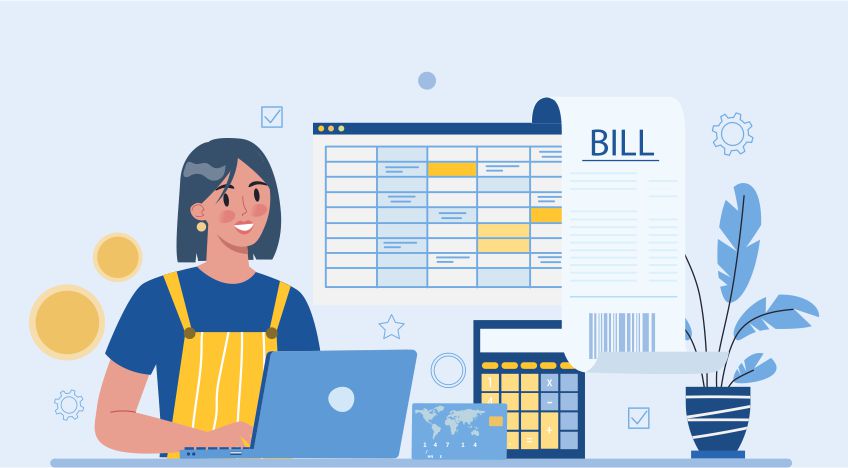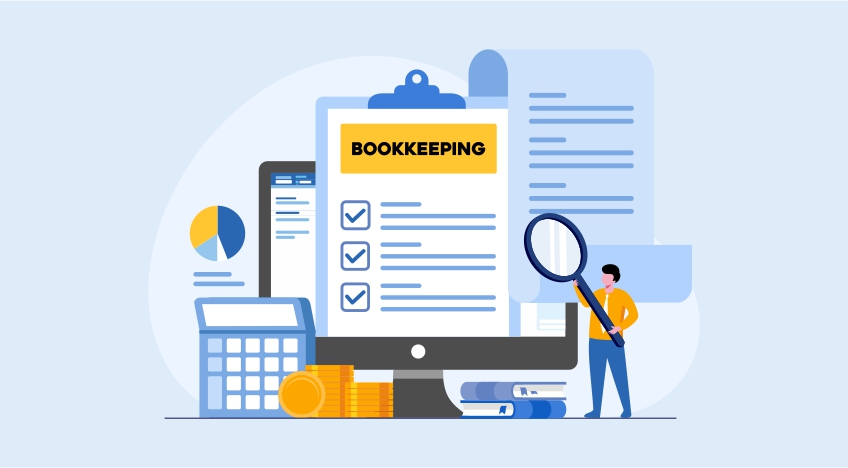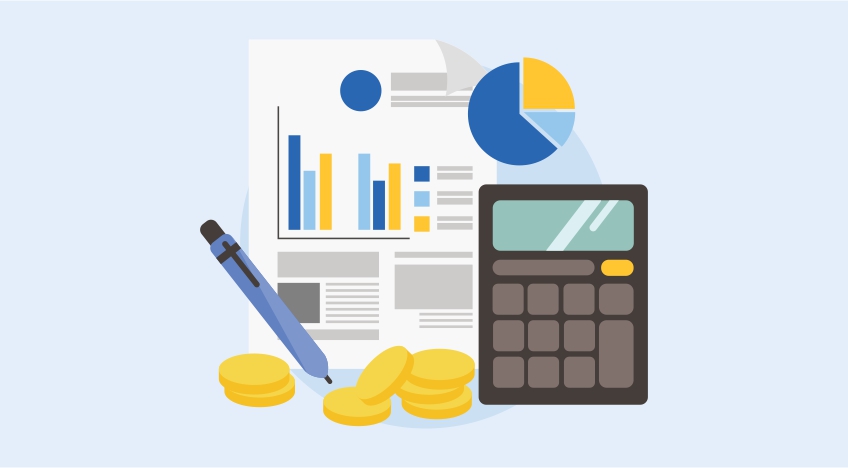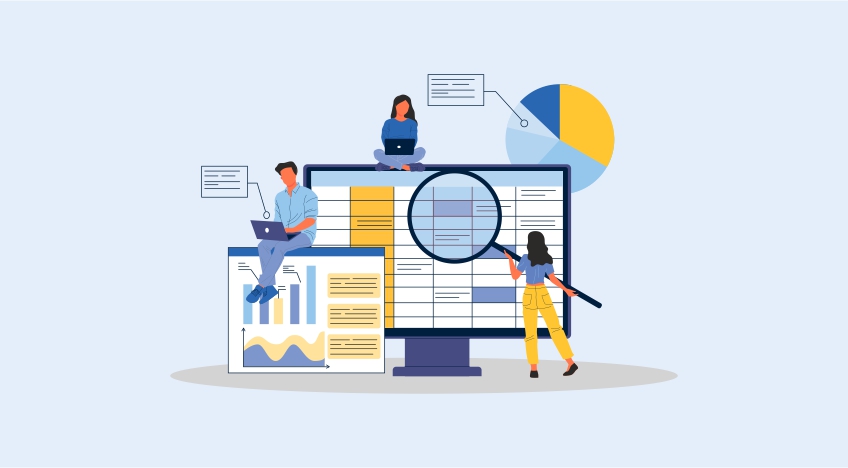- What is budget management, and why should you budget?
- Corporate budgeting
- Ways to improve your budgeting
A budget estimates how much money will be earned and spent in the future. It can be prepared for a person, a company, a business, or a government. A budget is a practical financial plan to ensure financial success and efficiency. It helps estimate the resources needed in the future and allocate resources appropriately. It helps set goals, plan for expected expenses, and measure progress and results by defining a financial plan and is helpful in managing expenses in the short and long term. There are many different types of budgets and ways to prepare and use them.
|
How to choose the best accounting software for small businesses in Bangladesh |
What is budget management, and why should you budget?
So, what is budget management? It is an estimate of expected revenues and expenses, and a budget is also a means of controlling expenditure and where money is spent. A business or project plan would be incomplete without a well-planned budget included. Some of the benefits of budgeting are:
Financial control: If there is no budget, a company may spend freely and have inadequate funds. A budget that plans expenditure to match the revenue forecast keeps spending in check. Since forecasts do not always match reality, a budget should be continually tweaked to maintain ongoing control over finances and spending. Continual monitoring is easier with accounting software and ensures that the company or project does not exceed the budgeted amount.
Operation planning and management: In planning a budget, one also plans the activities for the budgeted period. Since the budget restricts planning by keeping it within the revenue, it helps plan expenditure without draining resources. Budgets also help compare the company’s self-discipline and adherence to previous budgets. Since budgets evolve to accommodate changing revenues and circumstances, they help the company’s plans evolve. It also helps plan for expenditures to generate sales.
Fixed budgets: Cost control is achieved by planning a static budget for certain expenses. This budgeted amount does not vary even if there are more revenues than expected.
Performance evaluation: A budget is also an evaluation tool. It helps compare the estimated expenses and revenues and compare the actuals. It can help determine if a company has exceeded its expectations.
Limit expenditures: When you use accounting software to set up your budget, you can easily see where you are going beyond the plan. Since you can see all your expenditures on each account in detail and summary, it is easier to implement cost control with the budget.
Growth plans: Since budgets help control expenses, they can be a great way of ensuring that if your company does well, you will have enough cash in hand to fuel growth plans. If spending is uncontrolled, there will be too little capital for expansion.
Cash flow management: Budgets help you specify the outflow of cash. If implemented strictly, a budget gives you good control over a company’s cash flow.
Corporate budgeting
Budgets are essential to managing a company’s finances. The budget development usually starts with creating projections for the sales, cost, and other company and market trends. When a budget is published, the factors and assumptions that it is based on are listed. The sales budget is studied first, as all the other budgets depend on sales revenue estimates. Companies create budgets for all their primary operations and departments. The different budgets are compiled into the master budget for the company. It includes the budgeted financial statements and a financing plan. The budget is reviewed by management and sent to the board of directors for their approval.
Budgets can be either static or flexible. A static budget does not change despite changes in the factors that could affect it. On the other hand, a flexible budget evolves to accommodate a changing environment. It is a more realistic way of navigating the actual business scenario. A company usually uses a combination of the two types of budgets for different expenditures.
Ways to improve your budgeting
Flexibility: Nothing is static in the business world, and the best forecasts can be off the mark. A flexible budget helps continually adjust to the changes. They make room for new estimates and help visualize how the changes will affect the company's finances. Monitoring your budget and its factors is a good way to keep your business in line with your business plan. Static budgets are unrealistic since the circumstances that influence them are not static.
Rolling forecasts: It is easier to forecast the near future more accurately than the distant future. Rolling budgets are more short-term. For example, a rolling budget could forecast the revenue and plan expenditure for the next quarter instead of the next year. A rolling forecast and budget are more likely to be realistic and easy to adhere to.
Budget according to plan: Always budget by your business plan. This helps your budget support your business plan and aids in meeting your goals. A disconnected budget makes the business plan meaningless.
Communicate: The departments and personnel affected by a budget are valuable sources of feedback. Listen to the feedback to ensure that the budget is in line with the reality on the ground.
Teamwork: It may be tempting to make budgeting a finance or accounting department process. But, you should plan a budget with inputs from all the departments and people involved. This gives you many perspectives and may make the forecast more accurate. Accounting software for business also helps you retrieve data and trends from all departments to include in forecasts and budgeting.
Goal setting: Forecasting and budgeting are opportunities to visualize goals and make practical plans to meet them. They also help understand the finances involved in achieving a goal. Making plans and setting goals without budgeting for them is a pointless exercise. A goal should be driven by a solid budget and financial plan.
Expect the unexpected: There is no way of anticipating a sudden, unpredictable event. However, a budget should have enough room to deal with unforeseen issues. A rolling forecast helps a company react to such unexpected problems quicker than a long-term forecast and budget.
Tracking and monitoring: A budget does not work in isolation, and one should keep track of all the market and company factors that affect the budget. Regular monitoring helps track how trends change in relation to what was predicted. Small details that would be missed otherwise are easily noticeable when monitoring a budget. They could help identify and address a potential financial problem before it goes out of control.
Include profit and cash flow: When setting budget goals, also include profits and cash flow goals. These are the two vital components of a company’s finances that should be emphasized in a budget.
Use the right tools: Spreadsheets are just a computerized way of storing manual records, and they are not the best way to design and monitor a budget. Accounting software for business encompassing all your financial activities is the best solution for active budgeting and monitoring. Flexible budgets are easier to monitor and tweak with software tools. Budget management is the complete management of all the aspects of the budget; an integrated accounting software such as TallyPrime is the best solution for forecasting, budgeting, and budget management. It saves time and effort and can help you implement budgets that save your money and enhance profits.
Read More:
- How To Choose Business Management Software In Bangladesh
- Why Is Accounting Software in Bangladesh So Important?











